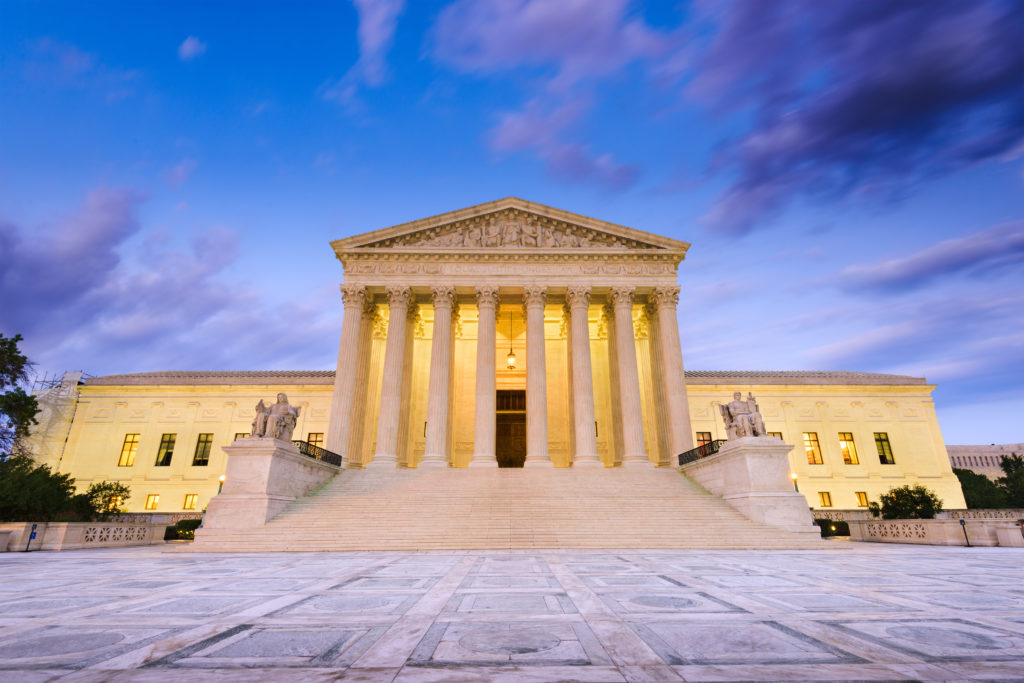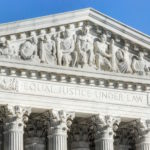This essay belongs to a two-part series. Part 1 can be read here.
Roe is a significant driver of the deep polarization that defines our current political moment. The catalogue of damage that Roe has inflicted on our political system includes exacerbating deep division, politicizing and delegitimizing the judiciary, eroding legislative power, and weakening state and local governments meant to be most responsive to the needs of their citizens. Take, for example, the issue of judicial nominations. Nominations were once a fairly routine and mundane process. In recent years, they have turned into high-profile divisive affairs that stoke the vicious cycle of partisan mistrust. The fear—or hope—that any new justice will provide a vote to overturn Roe plays an outsized role in that unfortunate transformation.
In this piece, we focus on perhaps the most underappreciated harm that Roe inflicted on the American political system. That is the way in which it established the expectation that contentious “culture-war” issues should be decided by federal courts. The judicial status quo created by Roe, maintained every time the Supreme Court applies Roe or its progeny, threatens religious minorities, including Jewish groups, by concentrating policy decisions in the hands of distant federal judges and bureaucrats who don’t understand their faith.
Returning abortion policy to the states would signal an enormous sea change in American law and politics. It would portend a renewal of federalism as a powerful tool of pluralism and self-government, allowing all kinds of minority groups to have more say over their own lives. If only for its role in that development, Jews should welcome a rejection of the judicial status quo as applied to abortion policy, which lies at the intersection of health, safety, and morality policy—the quintessential areas of state regulation.
Start your day with Public Discourse
Sign up and get our daily essays sent straight to your inbox.Overturning Roe Might Diminish Polarization and Division
There can be little doubt that Roe has contributed to polarization, which in turn has made American self-government more challenging. But one might object that returning abortion law to state legislatures would itself create division and discord as neighbors and friends debate how their state should regulate abortion. Doubtless there will be some tension and heated exchanges during this process. But channeling such debate through civic and political channels will be substantially healthier than the current situation, under which persuasion is futile and only pure power politics matters. With policy returned to the democratic sphere, no matter what the outcome, each side will know that they had an opportunity to voice their opinions. Democratic norms teach citizens to accept the results of the debate, at least until they manage to persuade a majority of their fellow citizens.
Channeling the abortion debate through civic and political channels will be substantially healthier than the current situation, under which persuasion is futile and only pure power politics matters.
Europe provides an example that should reassure those who are worried about the possible contentiousness of legislative debates over abortion. Countries such as England, France, and Germany have all regulated abortion through the democratic process, and the issue is less explosive in those countries than it is here. France currently bans abortion, with certain exceptions, starting twelve weeks after conception, a policy more restrictive than the Mississippi law that the Supreme Court will review this year. France’s law has been changed through the democratic process several times over the last few decades, and there is no reason to think that a similar situation could not work in the United States.
Supporters of legalized abortion should imagine how they would feel if the Supreme Court banned abortion outright and concluded that pro-choice arguments are irrelevant—without even the pretense of a serious legal argument—merely because nine lawyers said so. That captures the frustration and sense of injustice and disenfranchisement that Roe’s opponents have experienced for the last fifty years. Roe and Casey were explicitly calculated to drive opposition to abortion out of polite society, settling the issue once and for all. They failed, however, to give compelling reasons why abortion’s opponents should comply. Ultimately they did the opposite, raising the temperature around abortion policy and poisoning the judiciary in the process.
Federalism Empowers Religious Minorities
Creating a culture and legal regime in which state and local officials decide more issues—not limited to abortion—would offer enhanced protection to minorities. Today, ever more issues are decided through unilateral executive action rather than through the legislative process, which is more accountable to the American people. We believe that the interests of Jews and other religious minorities would be better served by a movement away from nationalization of social issues and toward a more traditional subsidiarity regime, which returns control over social issues to the decision makers with the most immediate knowledge of the problems they are addressing. The reversal of Roe would be an important step in that direction.
It once made sense for American Jews to cast their lot with centralized authority, which represented a bulwark of toleration for immigrant groups against local hotbeds of nativism and bigotry. After all, it was the federal government that shattered state-enforced regimes of segregation and Jim Crow. It was Congress that helped ensure that religious minorities would be protected by laws such as Title VII of the Civil Rights Act, which prohibits religious discrimination in employment. It is therefore understandable that there is still significant residual skepticism among minorities, religious or otherwise, of federal regimes that move power back to states and localities.
Such skepticism, however, “rests on an outdated factual premise,” in the words of Yale Law School Dean Heather Gerken. Today’s federalism, according to Gerken, is “one of many institutional and legal strategies we use to instantiate pluralist politics . . . it is an essential part of a well-functioning democracy.” In an era when healthy pluralism is hard to come by, federalism comes to the rescue by allowing people with fundamentally different ways of life to coexist, and be served by representatives who understand their constituents well. We are not arguing that the federal government has no role to play in continuing to protect minorities in situations where such help is needed. We are, however, arguing that today, in most cases, state and local governments will will do a better job protecting religious minorities’ rights than distant bureaucrats or centralized policy-making bodies.
In an era when healthy pluralism is hard to come by, federalism comes to the rescue by allowing people with fundamentally different ways of life to coexist, and be served by representatives who understand their constituents well.
Bureaucracy’s Failure to Understand Religion
Nowadays, the threat to pluralism does not come from our typical fellow American citizen—who has overwhelmingly positive feelings towards Jews—or even from state legislatures motivated by animus toward religious minorities. Instead, it comes from large, centralized institutions that rule from afar with little understanding of the needs of minority cultures. For example, Native American tribes frequently clash with the Department of Fish and Wildlife over regulations regarding the possession of eagle feathers. Another such example occurred when a federal agency granted mining rights that would obliterate a site sacred to the Apache Stronghold tribe.
In these cases, the agencies were not intentionally acting to oppress religious minorities. They were, as they remain, simply unlikely to understand or be responsive to minority interests. By design, these federal agencies are dedicated to achieving narrow policy goals through rules and regulations that do not account for outlier groups and the accommodations they may need. Given this reality, minority communities should favor political and social arrangements that decentralize decision-making that affects their deeply-held interests.
Subsidiarity and federalism are likely to protect minority populations simply by ensuring that the people who are most likely to know about and understand their interests are the ones making the decisions.
By contrast, federalism benefits minority communities as local lawmakers are significantly more likely to be aware of and sensitive to their interests than far-off bureaucrats. A politician or bureaucrat in Washington, D.C. may not understand the importance of a particular site or ritual to a small Native American tribe in Kansas, but the Kansas state legislature is more likely to, and their county and city governments even more so, respectively. A federal judge on the Fifth Circuit Court of Appeals (which has jurisdiction over some states in the South) once scoffed at the idea that a law requiring everyone to turn a lightbulb on and off every day could possibly interfere with someone’s religious faith. A local judge or city councilman in New York would be much more likely to know that Orthodox Jews would consider doing so a violation of the Ten Commandments. Subsidiarity and federalism are likely to protect minority populations simply by ensuring that the people who are most likely to know about and understand their interests are the ones making the decisions.
Local Politics Protects Religious Minorities Better than National Politics Can
Even when local governments try to enact laws that may harm a minority population, federalism should increase religious minorities’ ability to use the political process to defend themselves. Consider that Jews constitute approximately 2 percent of the American population, but about 9 percent of the population of New York state. While these are still relatively small numbers, the simple fact remains that “the Jewish vote” is more important to lawmakers in New York looking to secure every vote that may tip the democratic scales in their favor. Because Jews are a communal people who tend to cluster together in neighborhoods, the numbers become even more stark at the municipal, county, and neighborhood levels. Inasmuch as Jews (or sub-denominations, such as Orthodox or Charedi Jews) have communal interests, Jewish interests are best served by vesting as much decision-making as possible in those who govern, for instance, Brooklyn, where Jews make up nearly a quarter of the population.
Dobbs v. Jackson Women’s Health Organization—a case tailor-made to challenge current abortion jurisprudence—is looming. Change is on the horizon. Next June, the Court is likely to either reverse or substantially curtail the expansive constitutional right to abortion it created in Roe. Though such an outcome would surely be met with an enormous outcry at first, in the long run it will set the stage for much healthier politics and rule of law. By reversing Roe, the Supreme Court can send a message that it is going to stop acting as the referee of American cultural disputes—a role that it was never qualified or empowered to play. It would communicate to other branches of government that the Court is committed to taking pluralism and self-government seriously, and that it is prepared to let states make decisions in accordance with what their constituents want. Jews most of all should embrace the sea change, if only because Jews have much to gain from the proper functioning of our constitutional order. Roe and Casey have thrown our constitutional order out of whack, and when order breaks down, vulnerable minorities stand to suffer the most.













